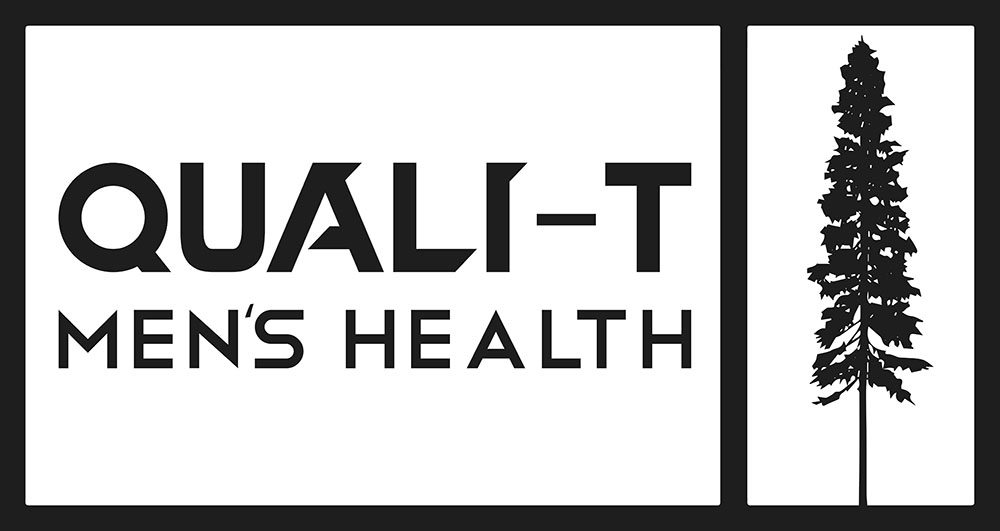
Introduction
Testosterone Replacement Therapy (TRT) has been a subject of great discussion over the past few years. This review aims to synthesize the findings from various studies to provide a comprehensive understanding of the benefits of TRT.
Sexual Function and Libido
One of the most well-documented benefits of TRT is its positive impact on sexual function and libido. Studies have shown that TRT can significantly improve erectile function and sexual activities in men with hypogonadism (low testosterone) (1). This improvement is crucial for enhancing the quality of life in affected individuals and their significant other. Many times significant others may think the man is cheating on them because they don’t want to have sex anymore, when in reality they just have low testosterone levels.
Metabolic and Cardiovascular Health
TRT has also been found to have beneficial effects on metabolic and cardiovascular health. For instance, TRT has been shown to improve insulin resistance, glycemic control, and reduce visceral adiposity (organ fat) in hypogonadal men with type 2 diabetes (4). Additionally, TRT has been associated with improvements in lipid (cholesterol) profiles and body composition, which collectively contribute to a reduction in cardiovascular risk (3) (5).
Bone Density and Muscle Mass
Another significant benefit of TRT is its positive impact on bone density and muscle mass. Testosterone deficiency is associated with reductions in bone mineral density and muscle mass, and TRT has been shown to reverse these effects, thereby improving overall physical function and reducing the risk of fractures (8) (9).
Mood and Cognitive Function
TRT has also been reported to have beneficial effects on mood and cognitive function. Men undergoing TRT have shown improvements in mood, emotional well-being, and cognitive abilities, which are often compromised in individuals with low testosterone levels (6) (7). Having a higher sense of wellbeing transcends all areas of your life. The same could be said for low sense of wellbeing.
Quality of Life
Overall, TRT has been found to enhance the quality of life in men with suboptimal testosterone levels. Improvements in energy, sexual function, metabolic health, bone density, muscle mass, and mood collectively contribute to a better quality of life (2) (5) (10).
Conclusion
In summary, TRT offers a range of benefits for men with suboptimal testosterone levels, including improvements in sexual function, metabolic health, bone density, muscle mass, mood, and overall quality of life. However, it is essential to carefully diagnose and manage testosterone levels before initiating TRT to ensure its safety and efficacy. Let Quali-T Men’s Health in Salem ensure you follow a safe protocol for TRT and get you on your way to feeling your best self!
References
- Corona, G., Torres, L., & Maggi, M. (2020). Testosterone Therapy: What We Have Learned From Trials.. The journal of sexual medicine. https://doi.org/10.1016/j.jsxm.2019.11.270.
- Barbonetti, A., D’Andrea, S., & Francavilla, S. (2020). Testosterone replacement therapy. Andrology, 8, 1551 – 1566. https://doi.org/10.1111/andr.12774.
- Mathur, A., Malkin, C., Saeed, B., Muthusamy, R., Jones, T., & Channer, K. (2009). Long-term benefits of testosterone replacement therapy on angina threshold and atheroma in men.. European journal of endocrinology, 161 3, 443-9 . https://doi.org/10.1530/EJE-09-0092.
- Kapoor, D., Goodwin, E., Channer, K., & Jones, T. (2006). Testosterone replacement therapy improves insulin resistance, glycaemic control, visceral adiposity and hypercholesterolaemia in hypogonadal men with type 2 diabetes.. European journal of endocrinology, 154 6, 899-906 . https://doi.org/10.1530/EJE.1.02166.
- Corona, G., Rastrelli, G., Vignozzi, L., Barbonetti, A., Sforza, A., Mannucci, E., & Maggi, M. (2021). The Role of testosterone treatment in patients with metabolic disorders. Expert Review of Clinical Pharmacology, 14, 1091 – 1103. https://doi.org/10.1080/17512433.2021.1938548.
- Bassil, N., Alkaade, S., & Morley, J. (2009). The benefits and risks of testosterone replacement therapy: a review. Therapeutics and Clinical Risk Management, 5, 427 – 448. https://doi.org/10.2147/TCRM.S3025.
- Lawton, J., & Amjad, M. (2023). Weighing the Benefits and Drawbacks of Testosterone Replacement Therapy. Sciential – McMaster Undergraduate Science Journal. https://doi.org/10.15173/sciential.v1i10.3364.
- Howell, S., & Shalet, S. (2002). Testosterone Deficiency and Replacement. Hormone Research in Paediatrics, 56, 86 – 92. https://doi.org/10.1159/000048142.
- Spitzer, M., Huang, G., Basaria, S., Travison, T., & Bhasin, S. (2013). Risks and benefits of testosterone therapy in older men. Nature Reviews Endocrinology, 9, 414-424. https://doi.org/10.1038/nrendo.2013.73.
- Maia, H., Casoy, J., & Valente, J. (2009). Testosterone replacement therapy in the climacteric: Benefits beyond sexuality. Gynecological Endocrinology, 25, 12 – 20. https://doi.org/10.1080/09513590802360744.





